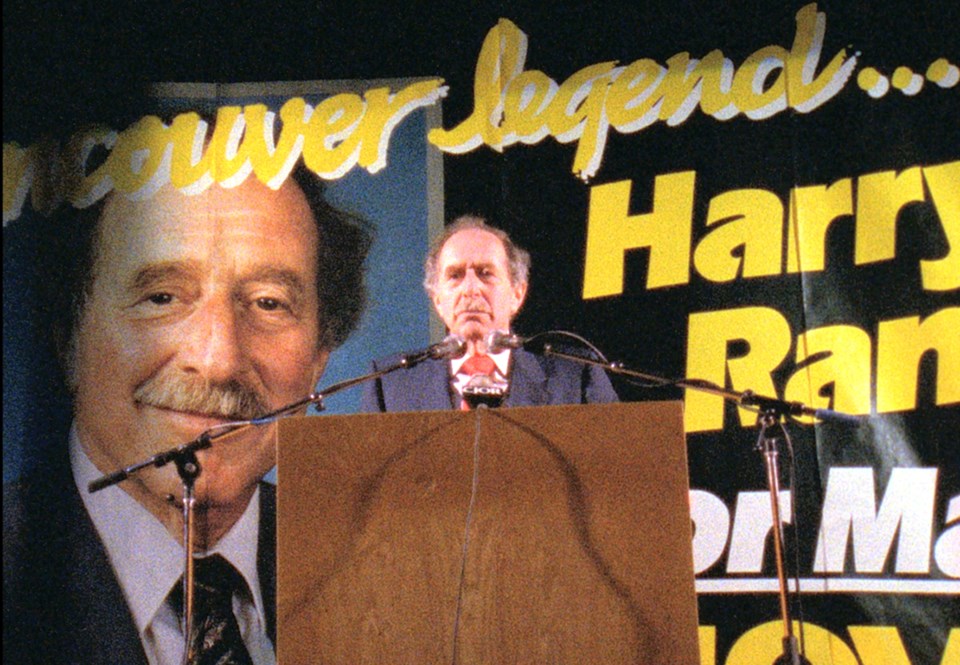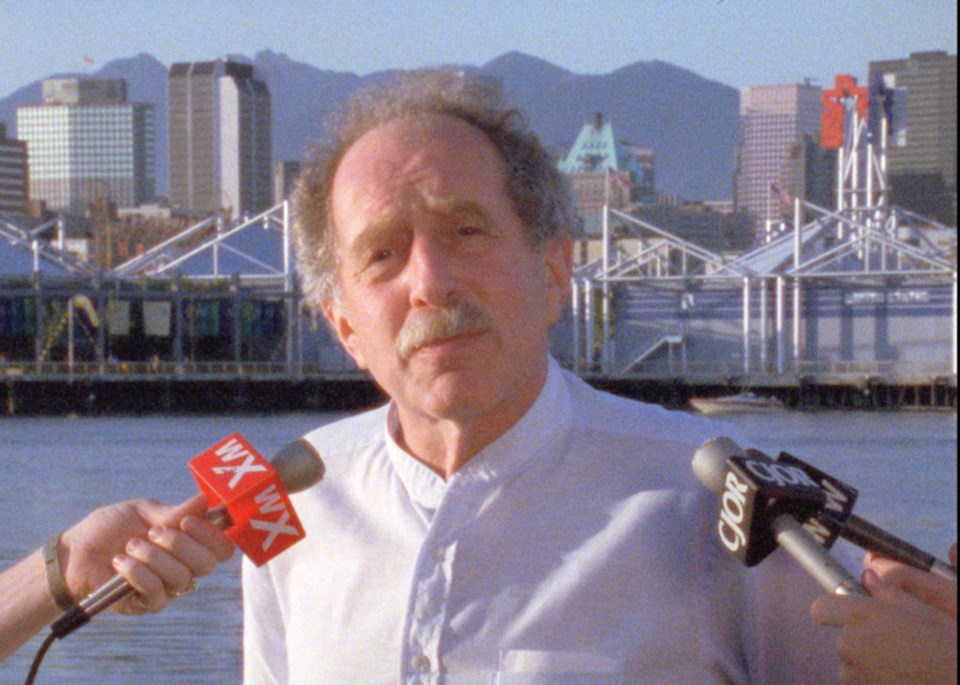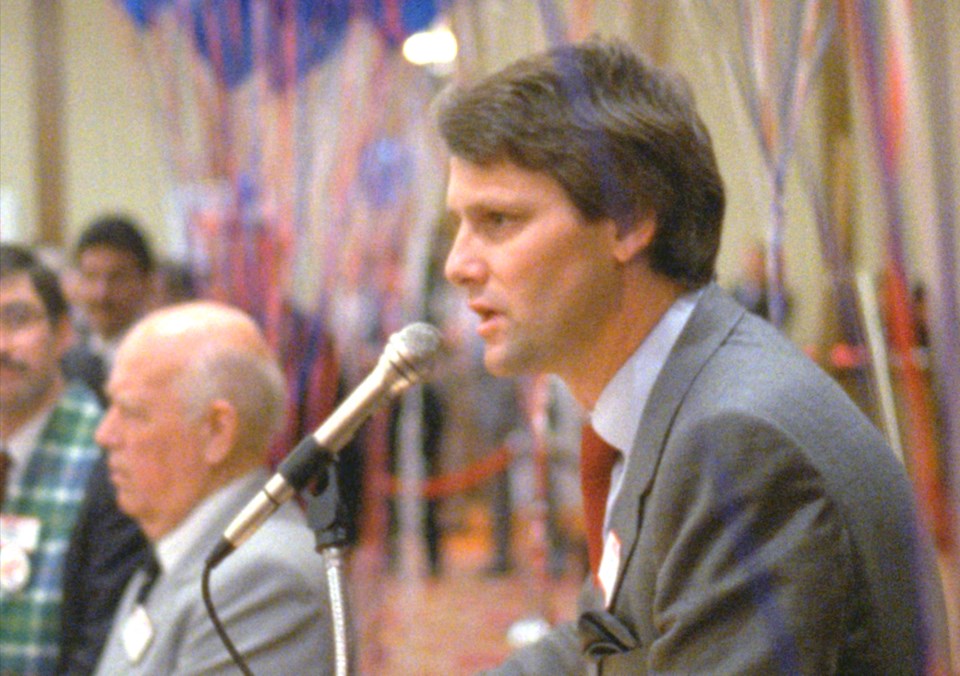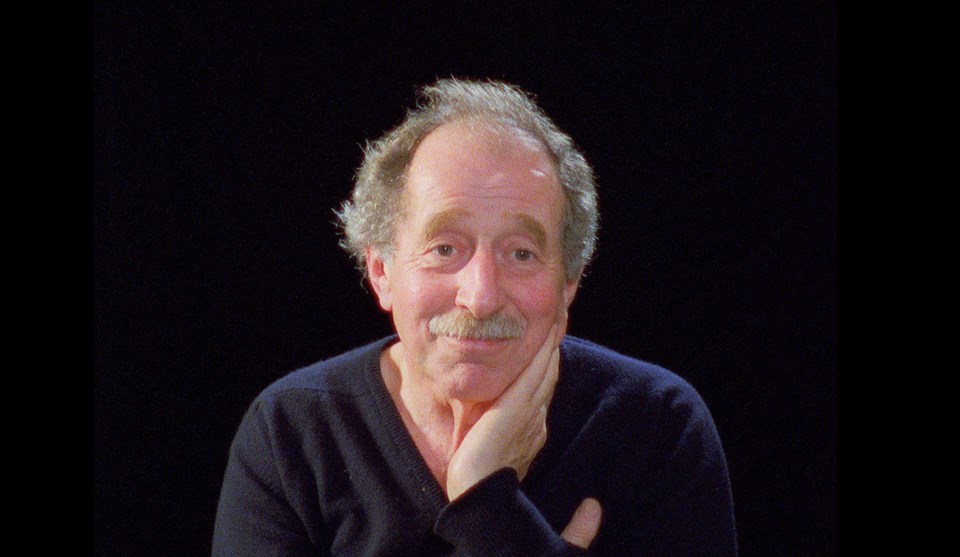What would Â鶹´«Ã½Ó³»look like today had Harry Rankin won the mayorâs race in 1986?
Maybe itâs naïve (or sci-fi) to believe that the impact of a single election could still be felt more than 30 years in the future.
But that 1986 election â a race between bombastic, left-leaning political activist Harry Rankin and a young NPA upstart named Gordon Campbell â embodied the choice that a post-Expo â86 Â鶹´«Ã½Ó³»faced: do we serve the needs of the people who already live here with pushes towards affordable housing and caps on development, or do we capitalize on the global attention and open the city up for business?
Campbell won that watershed election in 1986, and the rest is both history and our present reality: Â鶹´«Ã½Ó³»hung out its âopen for businessâ sign to developers and foreign investors; Â鶹´«Ã½Ó³»is in the midst of a housing crisis that is making it increasingly difficult for people to stay. Ìý

The current relevance of this long-ago election is clear in The Rankin File: Legacy of a Radical, which kicks off the 2018 DOXA Documentary Film Festival on May 3.
âThe comparisons between 1986 and 2018 make themselves,â says director Teresa Alfeld in a recent phone interview. âThere was a lot of attention on the city at that time about where are we going to go. Now that weâre moving into being a metropolitan, world-class city, what does that really mean and what do we want to do and how do we want to build?â
Alfeld knew little more than Rankinâs name when his son Phil showed up at the social justice film organization she worked at with a request: to make sense of a âbasement archiveâ of more than a dozen boxes of material related to his dad, who had died in 2002.

What Alfeld discovered in that basement archive was a treasure trove of clippings, campaign materials, and news footage, as well as reels of studio interviews with Rankin that were conducted as part of an unfinished documentary by filmmaker Peter Smilsky and left to languish in Phil Rankinâs basement.
âI didnât know too much about Harry Rankin when I first got my hands on the film, but as I watched more and more, I came to learn this amazing story of this absolutely passionate, hilarious as hell and completely politically convicted individual and what he was trying to do with the city back in the â80s, and so I realized, âOh my god, I have to keep going with this,ââ recalls Alfeld.
She did, and seven years later, the result of her diligence is The Rankin File: Legacy of a Radical, which shines a spotlight on a man whose dire warnings about Vancouverâs future have arguably come to pass.Ìý
Rankin had been on local council for years â and was considered the most popular politician in Â鶹´«Ã½Ó³»â by the time he announced his candidacy for the mayorâs race in 1986.

Heâd been waiting until COPE had a stronger presence on council before he ran, and when they did, he was that spoke to his long-held socialist beliefs.
Rankin believed in protections for tenants. He believed in affordable housing. He believed that 35 per cent of all new dwellings should be social housing. In one campaign rally shown in the film, the late social activist Jim Green calls Rankin âthe best friend the Downtown Eastside ever hadâ (Rankinâs people called Campbell âthe marathon manâ because he was so closely associated with Marathon Realty).
This is how Rankin describes himself in the documentary: âI have a great capacity to be indignant about other peopleâs problems.â
But Rankin could also be rude and irritable. Heâd verbally lash out at audience members during Q&As. In one debate with Campbell, he interrupted him and called him a twerp.
Thus, Rankinâs message was often lost, buried beneath the bombast (as well as incessant insinuations that he was a communist â which, during the Cold War, could and did cast a pall).

The Rankin File includes present-day interviews with Rankin colleagues and foes who enjoyed a front-row seat to the campaign, including Libby Davies, Mike Harcourt, documentarian Smilsky (who expresses gratitude to Alfeld for finishing what he started), and Campbell himself.
âNone of my peers knew who Harry was,â says Alfeld, who grew up in East Vancouver. âItâs hard now in 2018 to even begin to think that the city was different. Thereâs a polarization of wealth, and people my age canât find places to live. Now that itâs an election year, it maybe could be different if we have the right folks in the right roles making the right decisions.â
Ìý
The Rankin File: Legacy of a Radical screens May 3 and 8 at the 2018 DOXA Documentary Festival. For tickets and schedule information, visit .
Sabrina Furminger is the editor-in-chief of and is a regular columnist with the Â鶹´«Ã½Ó³»Courier.


